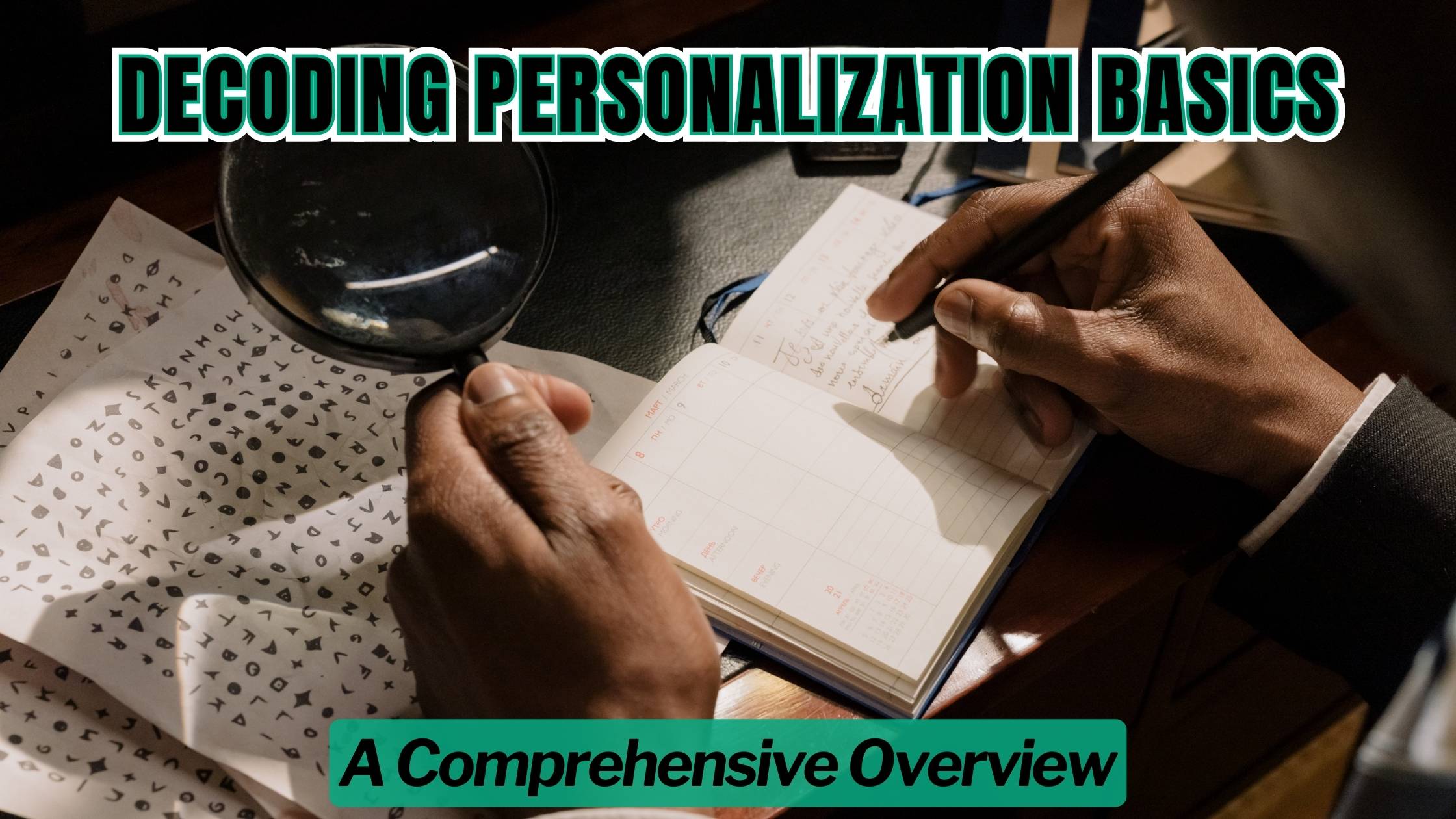Decoding Personalization Basics: A Comprehensive Overview


Decoding Personalization Basics: A Comprehensive Overview
In the ever-evolving landscape of digital marketing, personalization has emerged as a fundamental strategy for businesses seeking to engage and retain customers effectively. From tailored recommendations to customized email campaigns, personalization encompasses a broad spectrum of techniques aimed at delivering relevant content and experiences to individual users. In this comprehensive overview, we delve into the basics of personalization, exploring its significance, strategies, and practical applications.
Understanding Personalization
At its core, personalization involves leveraging data and insights to deliver targeted content and experiences to users based on their preferences, behaviors, and demographics. By tailoring interactions to individual needs and interests, businesses can enhance user engagement, foster brand loyalty, and drive conversions. Whether it’s recommending products based on past purchases or addressing users by name in marketing communications, personalization adds a layer of relevance and resonance to the customer experience.
The Significance of Personalization
In today’s competitive marketplace, personalization has become more than just a buzzword; it’s a strategic imperative for businesses looking to stand out and succeed. Studies have consistently shown that personalized experiences lead to higher levels of customer satisfaction, increased brand loyalty, and greater ROI on marketing efforts. Moreover, as consumers become increasingly inundated with generic marketing messages, personalization offers a way to cut through the noise and forge meaningful connections with target audiences.
Strategies for Effective Personalization
Achieving effective personalization requires a combination of data-driven insights, technology solutions, and thoughtful execution. Key strategies include:
- Data Collection and Analysis: Gathering relevant data points about users’ preferences, behaviors, and interactions across various touchpoints is essential for personalization efforts. This data can be obtained through website analytics, CRM systems, and other sources, providing valuable insights into user preferences and behaviors.
- Segmentation: Segmenting users based on common characteristics or behaviors allows businesses to deliver more targeted and relevant content. Segmentation criteria may include demographics, purchase history, browsing behavior, or engagement level.
- Content Personalization: Tailoring content and messaging to specific segments or individual users enhances relevance and resonance. This may involve dynamically adjusting website content, email campaigns, product recommendations, or social media ads based on user preferences and behaviors.
- Automation: Leveraging automation tools and algorithms streamlines the personalization process, allowing businesses to deliver timely and relevant content at scale. Automation can help optimize workflows, trigger personalized messages based on user actions, and dynamically adjust campaigns in real-time.
Relevant SaaS Products
Before we conclude, let’s outline several relevant SaaS products that can assist businesses in implementing and optimizing their personalization strategies:
- Optimizely: A leading experimentation platform that enables businesses to test and optimize personalized experiences across websites, mobile apps, and other digital channels.
- Segment: A customer data platform that helps businesses collect, clean, and unify customer data from various sources, enabling personalized marketing campaigns and customer experiences.
- Dynamic Yield: An AI-powered personalization platform that provides tools for delivering tailored content, product recommendations, and targeted campaigns based on user behavior and preferences.
- Adobe Target: Adobe’s personalization solution that empowers businesses to deliver individualized experiences across web and mobile channels, using AI-driven algorithms to optimize content and offers in real-time.
- Evergage: A real-time personalization platform that enables businesses to deliver relevant experiences and messages to users based on their behavior, preferences, and intent.
Conclusion
In conclusion, personalization is not merely a trend but a strategic imperative for businesses looking to engage and retain customers in today’s digital age. By leveraging data-driven insights, advanced technology solutions, and thoughtful execution, businesses can deliver targeted content and experiences that resonate with individual users, driving satisfaction, loyalty, and ultimately, business growth.
Now, let’s explore how Subscribed.FYI aligns with the overarching theme of this article. Subscribed.FYI serves as a comprehensive resource for businesses seeking to optimize their SaaS stack and streamline subscription management processes. By accessing exclusive deals and comprehensive insights on a diverse range of SaaS tools, users can enhance their personalization efforts and drive greater ROI on their marketing investments. Furthermore, Subscribed.FYI’s subscription management solution enables businesses to track expenses, monitor subscriptions, and optimize costs effectively, thereby enhancing operational efficiency and maximizing their personalization initiatives.
Relevant Products:
Incorporating these insights and tools into your personalization strategy can help you deliver targeted, relevant experiences that resonate with your audience and drive business success. Remember, personalization is not a one-size-fits-all approach; it requires continuous refinement and optimization to meet the evolving needs and expectations of your customers.





